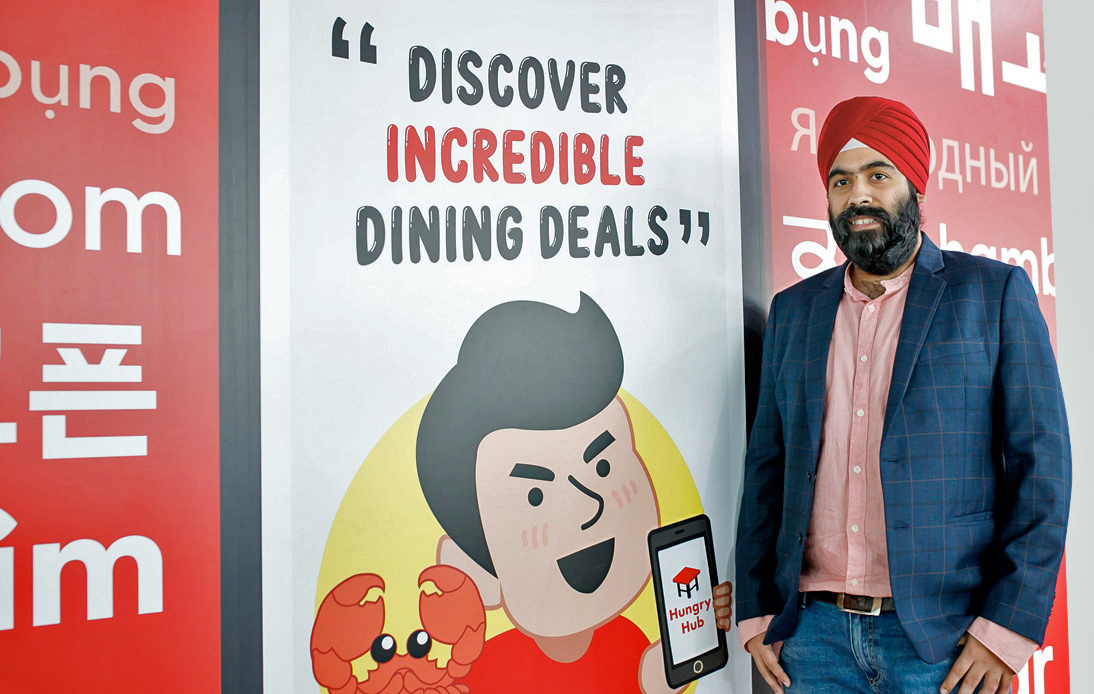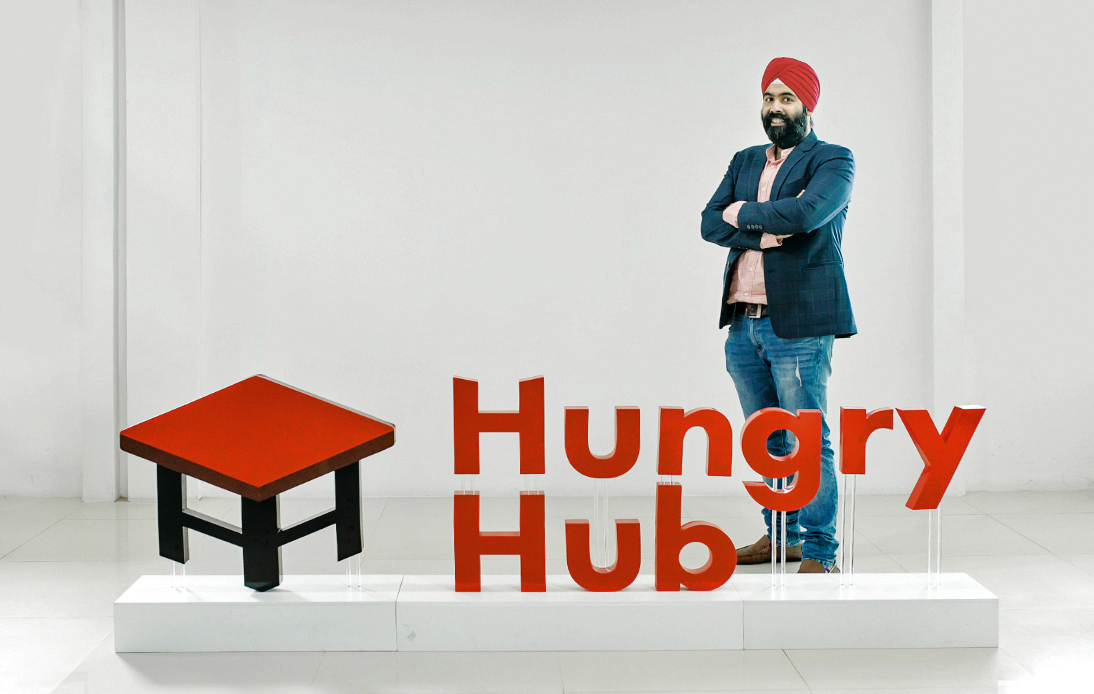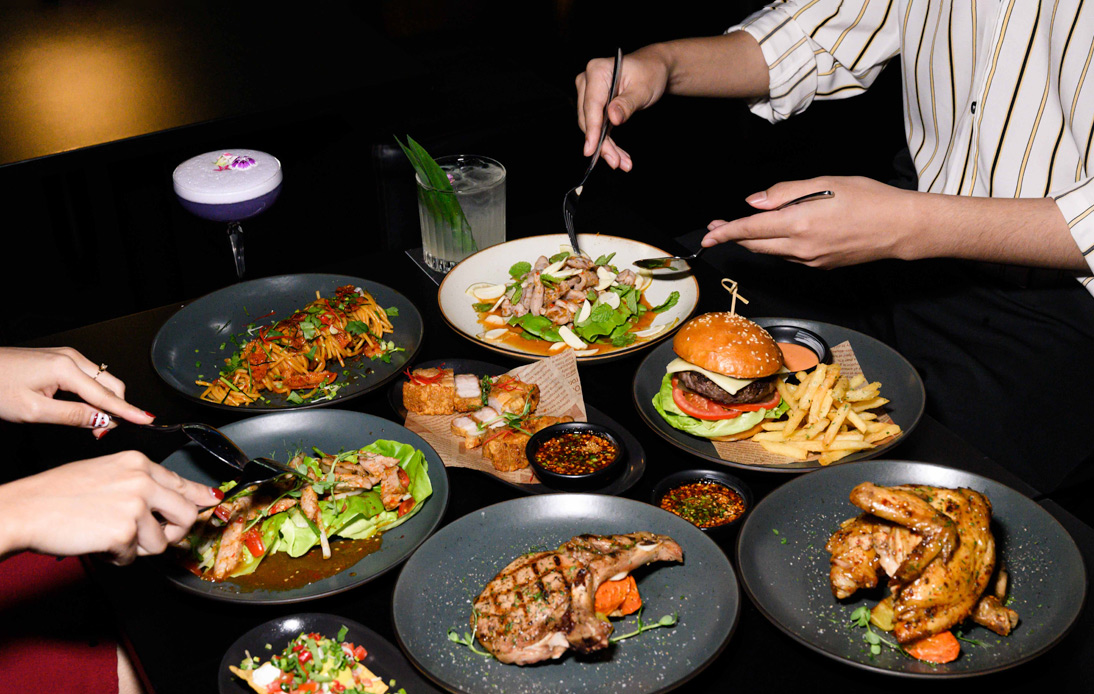
Hungry Hub is Thailand’s number 1 buffet app, giving people in Bangkok and other major cities a chance to enjoy the all-you-can-eat dining concept at normal à la carte venues. It has become very popular in recent times, and over 1,000 leading restaurants and hotels have made more than US$50 million in extra revenue by joining Hungry Hub’s network.
Surasit Sachdev, the CEO and co-founder of Hungry Hub, is a well-regarded figure within Bangkok business circles. He gained a decade of experience in the F&B industry, as well as another decade later working in the field of tech, making him the perfect candidate to lead the firm’s team of seventy, who work hard to secure excellent deals on epic meals!
Globe sat down for an interview with K. Surasit to discuss the rising popularity of Hungry Hub as they prepare to expand to overseas markets starting with Singapore, and advice he can offer to anyone with aspirations of making a success of themselves in business.
My family are in the hospitality industry, owning a few hotels in Bangkok. When it came to starting a business I was hoping to get involved with the hotel industry. My background is in tech which I love, therefore building a hotel booking platform greatly appealed to me. I did my research and back then, Priceline.com, Booking.com and Agoda were spending a billion dollars a year on Google Ads, and I simply didn’t have the money to compete. So I thought, what about food bookings? I researched the topic, and OpenRice were the only company involved back then. With Thailand being so centered on food it occurred to me there was a gap in the market for the type of services that Hungry Hub currently provide.
That’s a hard one. I’m not really a foodie to the core as I can’t eat everything. I am allergic to soft shell crab and I have other dietary restrictions. A foodie will have all of these fancy cuts of beef, and I can say I’m just not like. But I am definitely a techie! When I was just 17, blogs were huge, so I wrote some of my own, and I started to make money off them from Google Ads. After that I worked in banking, and I learnt about automation, which came in useful for my tech career. I wanted to be able to run my business while I was on holiday!
Our mission is to help people know the amount they are going to spend before they walk into any restaurant, especially those high-end establishments where transparency can be hard to find. We also want to help restaurants bring in extra revenue in a sustainable way whereas before us, the problem that we saw in the market was all the websites and apps working with restaurants were offering heavy discounts to attract customers and this was unsustainable for them. Hungry Hub’s strategy is for the long-term, and far more feasible.
Taking off fire! That is usually my job…clearing problems which the team can’t fix, whether it is about our customers, partners, or staff. I also try to find new opportunities like looking for new types of products, new segments of customers, and recruiting new talents. If I am able to solve problems for my team, and find good opportunities, then I’m performing my role well. Apart from that I have meeting after meeting to attend, and I am also the public face of the company, which if I am honest is probably not my favorite thing to have to do.
I am a numbers person. So I would leave the decision of whether the number is justifiable or not to each individual. We work with over 1,100 restaurants and hotels right now across six cities in Thailand and we have amassed in excess of 1.5 billion baht of revenue for our restaurants and hotel partners, with the top one generating around 100 million baht each year through us alone. I’d say, we are immensely proud of the fact that we are a revenue contributor of 10% to 20%, for the majority of restaurants and hotels we collaborate with.
First of all, we started out as “all you can eat” – many people thought of it as a buffet hub. But then, soon enough, a lot of restaurants that we want to work with they were like: “We cannot do you that favour…but we do want to work with you.” So, we then launched what we called Party Packs: all-inclusive set menus, perfectly designed to be shared in groups, which appeals to the Asian style of eating where everything goes in the middle, whereas set menus in the Western world are designed for individual dining. Hungry@Home is our delivery option that launched during Covid. We also released Xperience, where you can combine F&B, rooms, activities, spas…all these types of things. It’s been hugely popular.
The biggest lesson that I have learned would be regarding people management, which is probably the hardest thing. Just when you think everything is stable, and you’re ready for the next step, but then one knot starts to get loose, and you have to tie them all up again. If I had a chance to redo this, I would have got an HR when we surpassed 30 staff. I think we started with HR when we reached 50-plus people, which is a bit too late. Hiring HR is not only for recruitment but also to keep an eye on the staff…and track their productivity.
My wife and two small kids, they keep me intact. My daughters are two, and four. Before I got married, so the first two years of opening the company I worked like any founder of a company would. I wanted to have a long-term company so I had to put rules in place. My phone is a distraction, and not looking at it much, especially on weekends, made a lot of sense. Healthy life, for me, means trying to be in the office by 10am, and leaving by 7pm. Being in food results in so many lunches and dinners and they keep me quite unhealthy, so I have to pay close attention to all of the meals that I’m consuming on a regular basis.
Thailand still has many decent opportunities for Hungry Hub. We only have around 1,000 partners for our business, and 10,000 partners is the amount we want to go to. We might go up to 4 to 5,000 in 4-5 years time in Thailand but what we don’t want to stop is going international. The product that we built, the solution that we have…is not a Thailand-only problem. Most of the start-ups based in Thailand are just copies of something that exists elsewhere in the world , and that’s why it’s hard to scale. What we’ve built is sustainable, and it doesn’t exist anywhere in the world. Currently there’s much stigma for Thai-based start-ups, that they can’t really expand overseas. We hope to change the current stigma.























